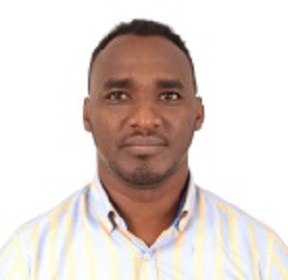
NEBIYU LER ALARO
EthiopiaTitle: Challenges faced by Healthcare providers in providing services to key population at risks of HIV in Ethiopia
Abstract:
As One Of The Main Goals Of The Partnership Framework (PF) Between The Government Of Ethiopia (GoE) And The U.S. Government (USG), Ethiopia Has Set A National Target Of Reducing New HIV Infections By 50% By The End Of 2014 (National Target). Funded By The USG, The PF Provides A Five-Year Joint Strategic Plan (2010-2014) For Cooperation To Support Ethiopia’s National HIV/AIDS Response (PEPFAR, 2010). Ethiopia Has An Estimated Adult Prevalence Of 1.5% And About A Million People Living With HIV/AIDS (PLWHA) (ECSA & IFC, 2012), Among Countries Most Affected By The Epidemic. The International Labor Organization (ILO) Projection For 2015 Indicates That As Much As 8.5% Of The Ethiopian Labor Force Loss Will Be Due To HIV/AIDS Deaths (World Learning, 2012). On The Other Hand, Since The PF Took Effect, USG Funding To The Program Has Been In Constant Decline. Moreover, The PF Does Not Fully Take Into Account Context And Development Barriers Due To The Prevailing Social, Political, Economic And Development Policies In The Country. Participation Of The Private Sector, Independent Civil Societies And Media In The Development Process Has Been Severely Curtailed. Contextual Factors Have Been Seriously Challenging The Prevention Of Mother-To-Child Transmissions (PMTCT) Efforts. Furthermore, The Country Lacks A Comprehensive Strategy To Fully Address The Issue Of Most-At-Risk Population (MARP) As Drivers Of The HIV Epidemic; And The HIV/AIDS Response Excludes Men Who Have Sex With Men (MSM), A “Significant Unacknowledged” But Fast Growing Transmission Route Of HIV (Tadele, 2008). Drawing from Literature Review and Practicum Experience in Ethiopia, This Paper Examines the Feasibility of Ethiopia’s National Target. The Main Problem In The HIV/AIDS Discourse In Ethiopia Appears To Be Behavioral Change, But Not Lack Of Knowledge. In Addition, Contrary To The Widespread Public Belief That Homosexuality Is Not Ethiopian, There Exists A Flourishing Underground Male-Sex Trade In Addis Ababa.
Biography:
Dr. Nebiyu Lera Alaro obtained his PhD in public health from Central University of Nicaragua (in academic partnership with Texila American University). He is an International Public Health Specialist with more than 10 years of experience in humanitarian affairs associated with Maternal, New born and Child Health (MNCH), Research, Project Monitoring and Evaluation, Health System Strengthening, Quality Assurance and Capacity Building, with teaching/mentoring experience for public health students, staff and volunteers. He worked for Doctors with Africa – CUAMM Lake state, South Sudan as Technical Project Manager where he was responsible for providing leadership and overall guidance in project planning, implementation and monitoring/evaluation including direct technical support; (training and mentoring) to staff, towards achieving effective participatory and sustainable implementation, of primary and secondary health care system at all levels. He presently works Health Support Organaization – THESO as Country Program Director, South Sudan. Dr. Nebiyu has been involved in many public health field works and operational researches. He has research publications on various medical and public health issues to his credit. He is known for commitment to excellence that is evident through all aspects of his work. He is innovative, demonstrates respect for others, passionate about his work and has a strong sense of accountability. His contributions have helped dramatically improve the reproductive health, child health, Expanded Program on Immunization (EPI), surveillance, prevention and treatment of Communicable and Non-Communicable Diseases (NCDs), health promotion, nutrition therapy program (as funded by USAID, HPF, WFP, UNICEF, Japan Plat fourm and Italian Cooperation funds) including evaluation system in South Sudan. The improvements reported in the external quality scores under his leadership have been simply dramatic. Importantly, Nebiyu is dedicated to mentoring students, interns, staff and volunteers.

